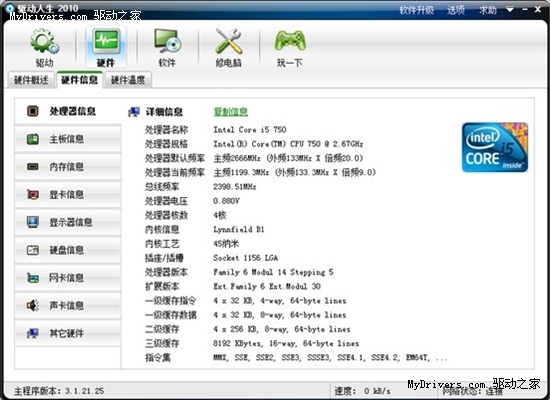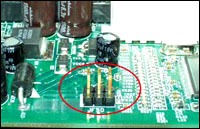因为甲骨文的尿性。mariadb应该要顶替mysql了。所以抛弃mysql
1,编译nginx
分别下载nginx,openssl,pcre
编译openssl的时候会提示
如果你不停止编译就会出错。这个问题应该是 openssl/config脚本猜对你的系统是64位,但是 会根据$KERNEL_BITS来判断是否开启x86_64编译,默认 是不开启的(很奇怪的设置,虽然会给你5秒时间停止编译并手动开启),所以你生成的openssl库文件是32位的,最后静态链接到nginx会出错。目前看来没有很好的方法把x86_64的参数传到openssl配置文件中 (openssl/config 猜测os架构,设置编译的参数是32位还是64位,默认是32位,然后调用openssl/Configure生成Makefile)
可以在configure之前export KERNEL_BITS=64,如果还是不起作用
就要手到修改了
进入nginx目录
$ ./configure ./configure –prefix=/usr/locale/nginx –with-openssl=../openssl-1.0.1i –with-pcre=../pcre-8.33
手动修改 objs/Makefile:
改成
./Configure darwin64-x86_64-cc –prefix=/Users/xxx/Downloads/openssl-1.0.1e/.openssl no-shared no-threads
再make
2,编译php
下载php源码和一些类库
zlib:http://www.zlib.net/
GD库:https://bitbucket.org/libgd/gd-libgd/downloads/libgd-2.1.0.tar.gz 不好下
freetype:http://sourceforge.net/projects/freetype/
libpng:http://www.libpng.org/pub/png/libpng.html
libjpeg:http://www.ijg.org/
curl: http://curl.haxx.se/download.html
mhash: http://sourceforge.net/projects/mhash/
mcrypt: http://mcrypt.hellug.gr/
还有bzip2。 gettext 和libtool 在gnu官网,不过速度不行,其他的库我用了系统自带。懒得再折腾,到时候没啥补啥。
除了libtool直接扔在了/usr,其他我都装在了/usr/local的一个个单独目录里面。比如jpeg就是/usr/local/jpeg方便以后修改
./configure –prefix=/Users/saint/bin/php –enable-inline-optimization –enable-fpm –with-mcrypt=/usr/local/libmcrypt –with-zlib –enable-mbstring –with-openssl –with-mysql –with-mysqli –with-mysql-sock –with-gd –with-jpeg-dir=/usr/local/jpeg –enable-gd-native-ttf –enable-pdo –with-gettext –with-curl –with-pdo-mysql –enable-sockets –enable-bcmath –enable-xml –with-bz2=/usr –enable-zip –enable-freetype –with-png-dir=/usr/local/libpng –with-pcre-regex –with-iconv-dir=/usr –with-gettext=/usr/local/gettext
3.编译mariadb
编译mariabd需要先安装cmake。去www.cmake.org下载安装tar zxf mariadb-5.5.32.tar.gz
cat > /etc/my.cnf << EOF [mysqld] basedir = /usr/local/mariadb datadir = /data/mariadb pid-file = /data/mariadb/mariadb.pid character-set-server = utf8 collation-server = utf8_general_ci user = mysql port = 3306 default_storage_engine = InnoDB innodb_file_per_table = 1 server_id = 1 log_bin = mysql-bin binlog_format = mixed expire_logs_days = 7 bind-address = 0.0.0.0 # name-resolve skip-name-resolve skip-host-cache #lower_case_table_names = 1 ft_min_word_len = 1 query_cache_size = 64M query_cache_type = 1 skip-external-locking key_buffer_size = 16M max_allowed_packet = 1M table_open_cache = 64 sort_buffer_size = 512K net_buffer_length = 8K read_buffer_size = 256K read_rnd_buffer_size = 512K myisam_sort_buffer_size = 8M # LOG log_error = /data/mariadb/mariadb-error.log long_query_time = 1 slow_query_log slow_query_log_file = /data/mariadb/mariadb-slow.log # Oher #max_connections = 1000 open_files_limit = 65535 [client] port = 3306 EOF /usr/local/mariadb/scripts/mysql_install_db --user=mysql --basedir=/usr/local/mariadb --datadir=/data/mariadb chown mysql.mysql -R /data/mariadb export PATH=$PATH:/usr/local/mariadb/bin echo 'export PATH=$PATH:/usr/local/mariadb/bin' >> /etc/profile
source /etc/profile
4.后续安装扩展
php提供了一个phpize工具供我们安装需要的扩展。
下面介绍phpize的使用:
(1).找到自己原来编译的php安装目录,例如我的目录是/home/saint/Development/php,在该目录下,找到bin/phpize。如果没有这个工具,则说明没有安装该工具,那么需要安装php.dev,一般都会有这个工具。
(2).要扩展的话,就需要有一个和当前已安装的php的版本一样的php的源包,当前php版本可以用过phpinfo()查看。
(3).打开源包目录,进入到ext目录,例如我就进入到:/home/saint/Development/php-5.5.6/ext下,ext下有各个php带有的扩展模块,进入到ext/sockets中。
(4).cd到ext/sockets后,运行phpize程序:
执行后,可以看到phpize会帮我们生成了对应的configure文件
(5).通过configure来配置,执行下面的命令:
注: php-config文件与phpize是同一个目录下的
(6).更改php.ini,增加下面的语句:
extension=”/home/saint/Development/php/lib/php/extensions/no-debug-non-zts-20121226/sockets.so”
觉得难看可以将那个日期文件夹删除
(7).重启Nginx

















